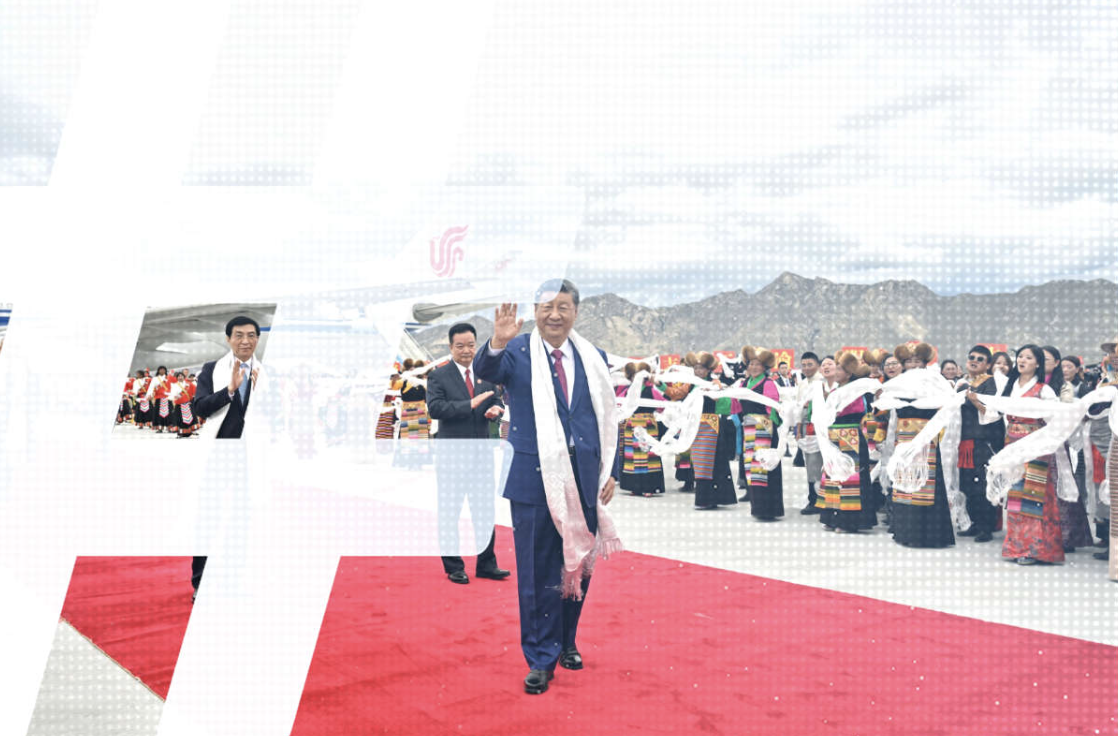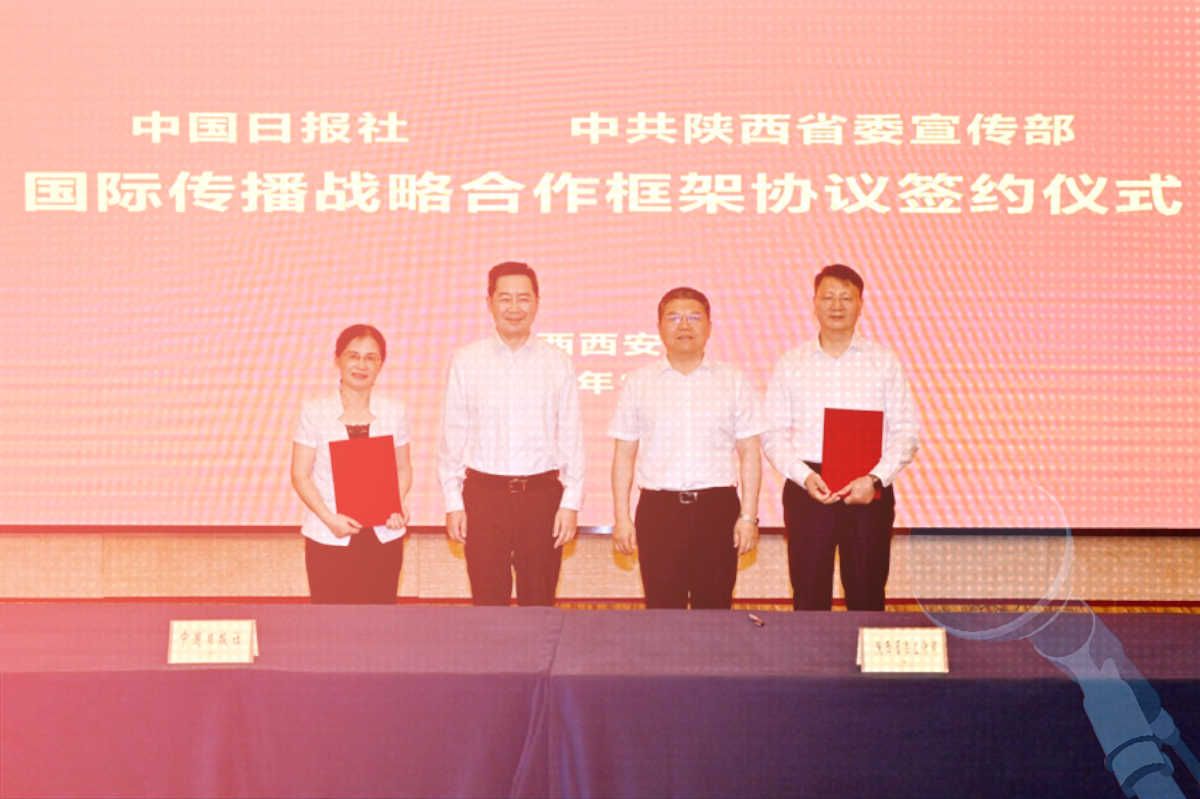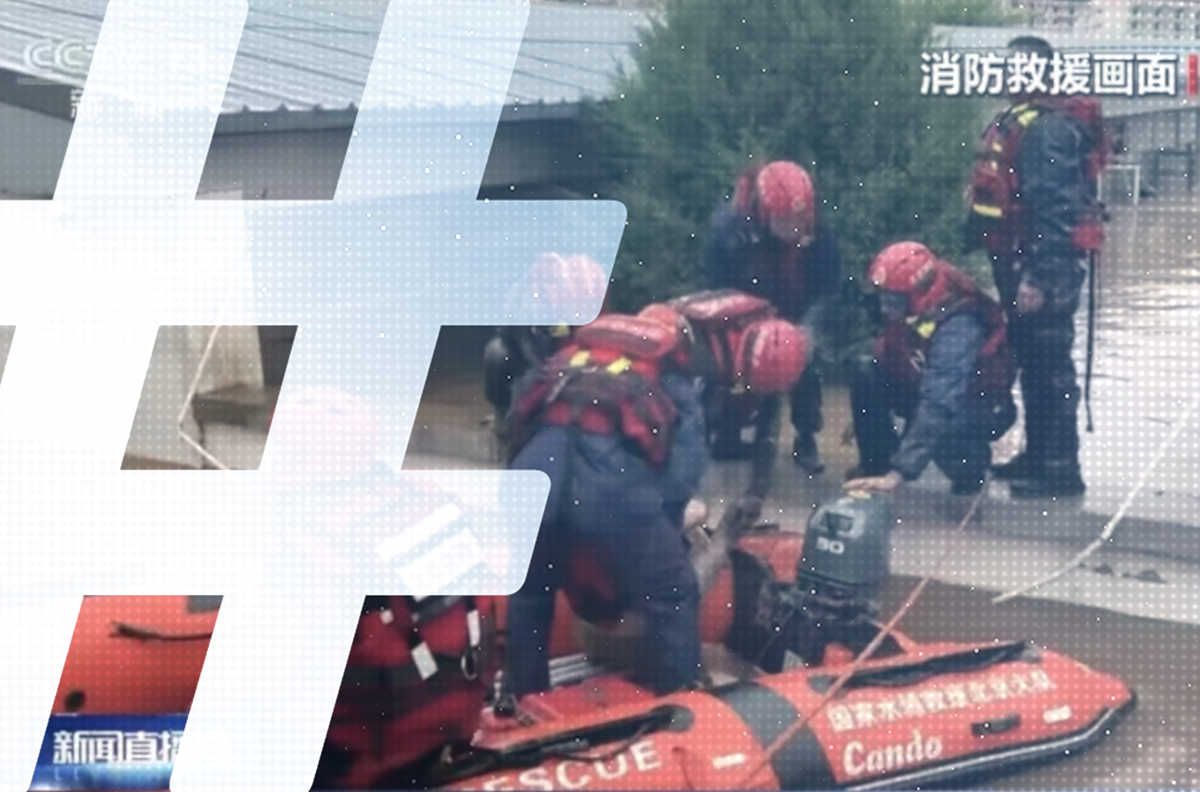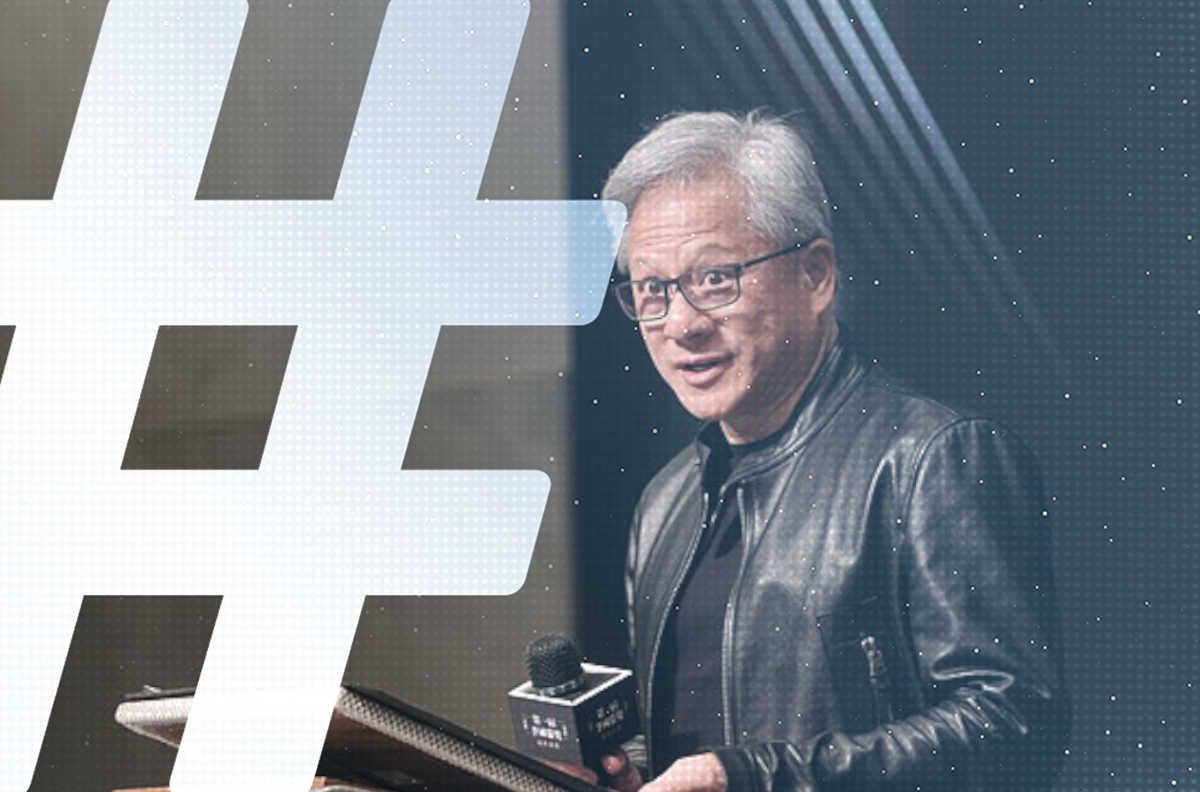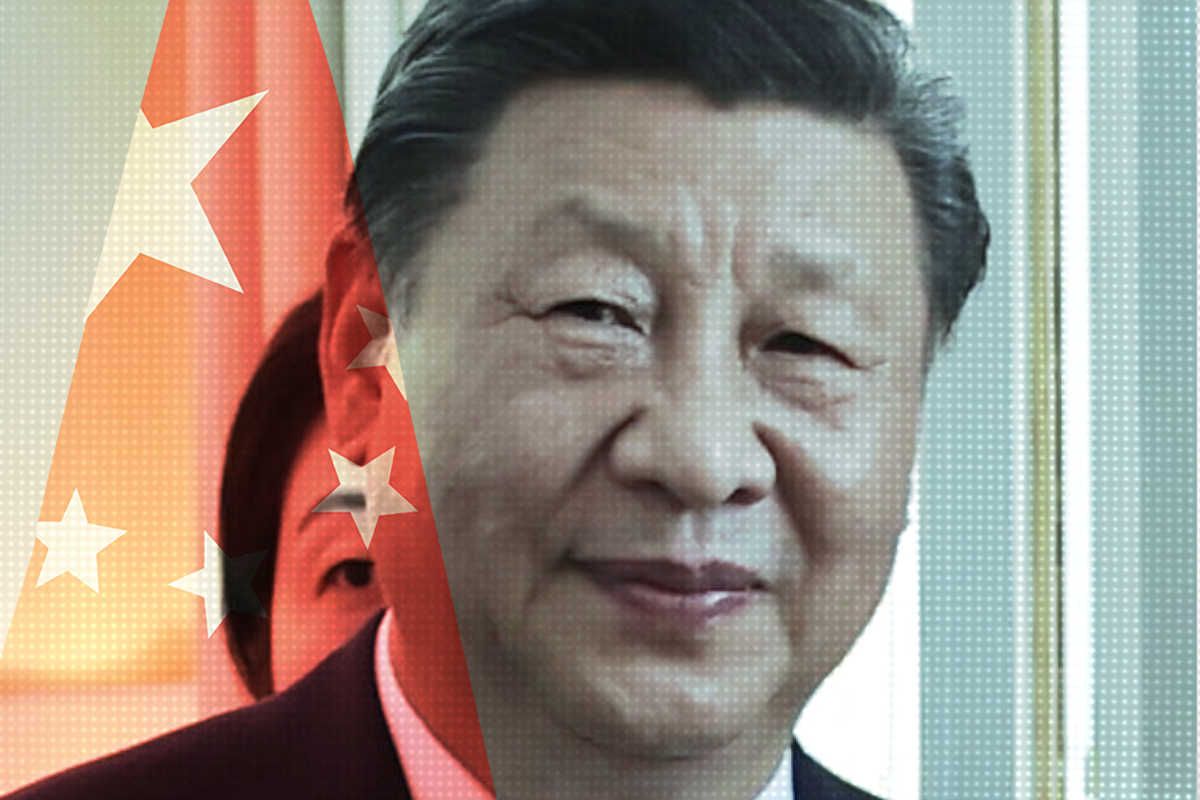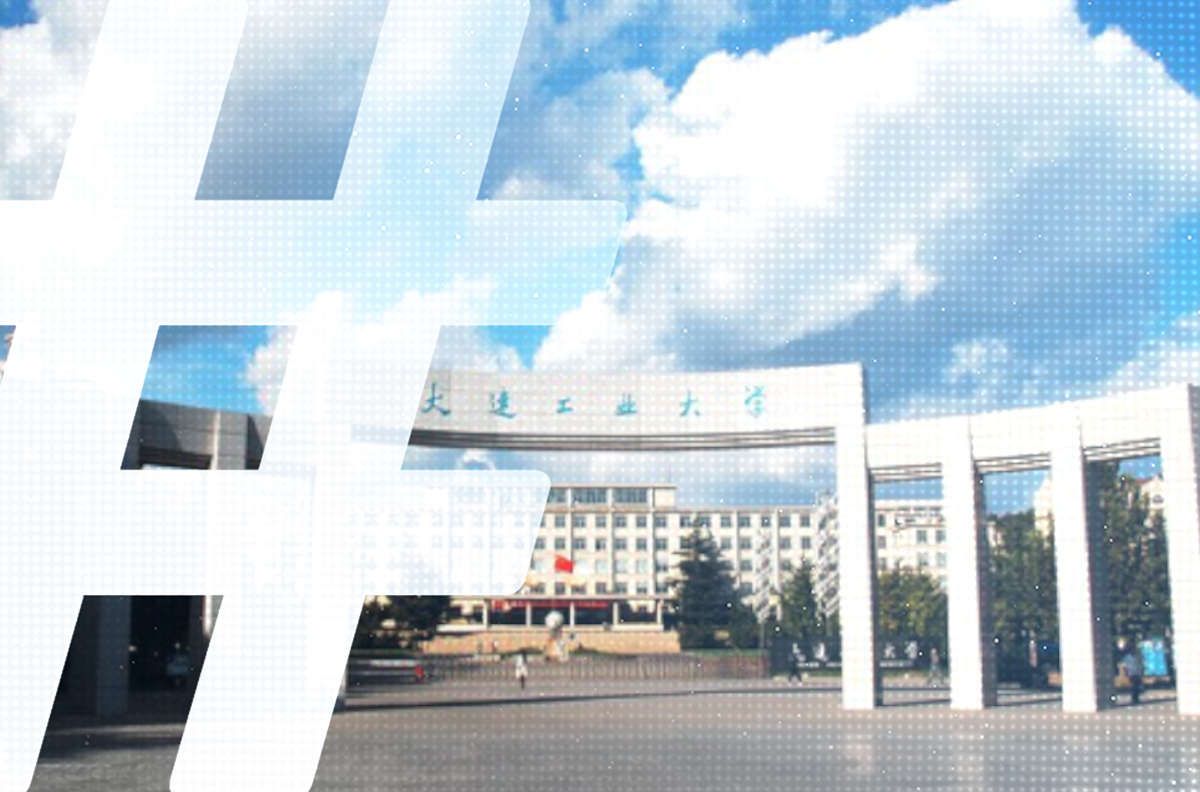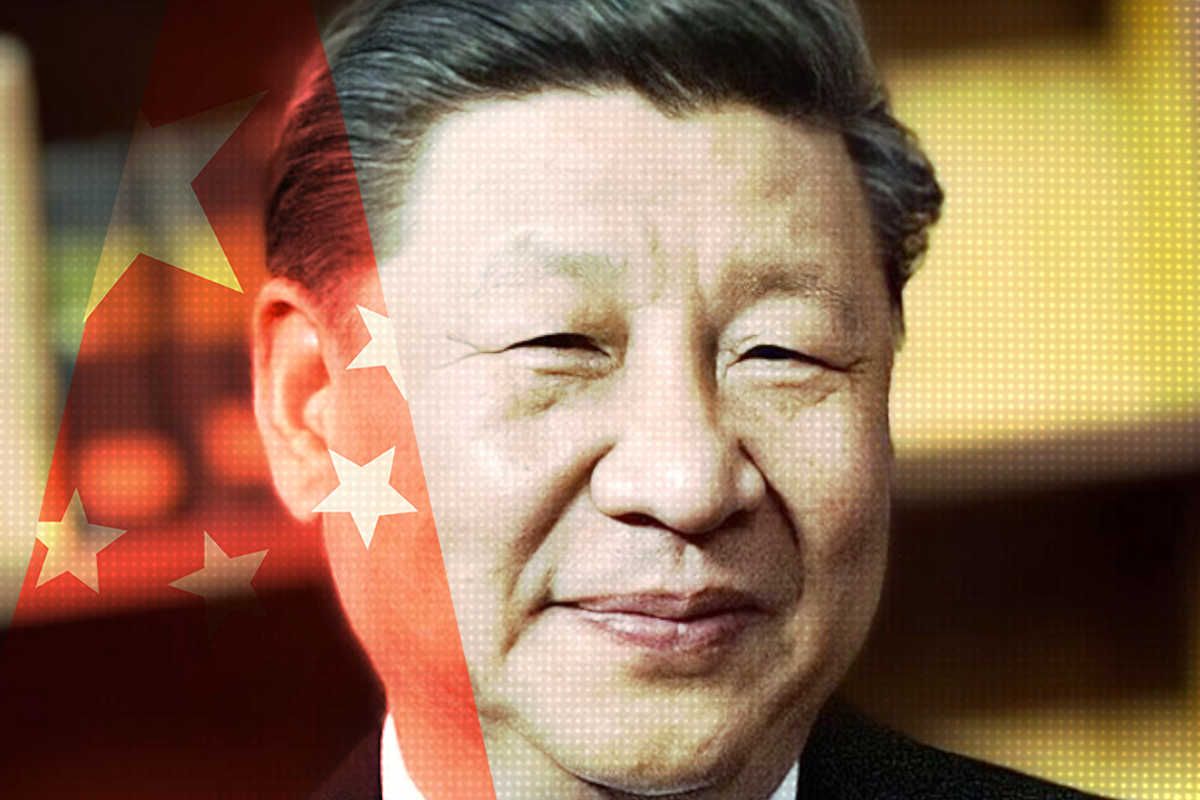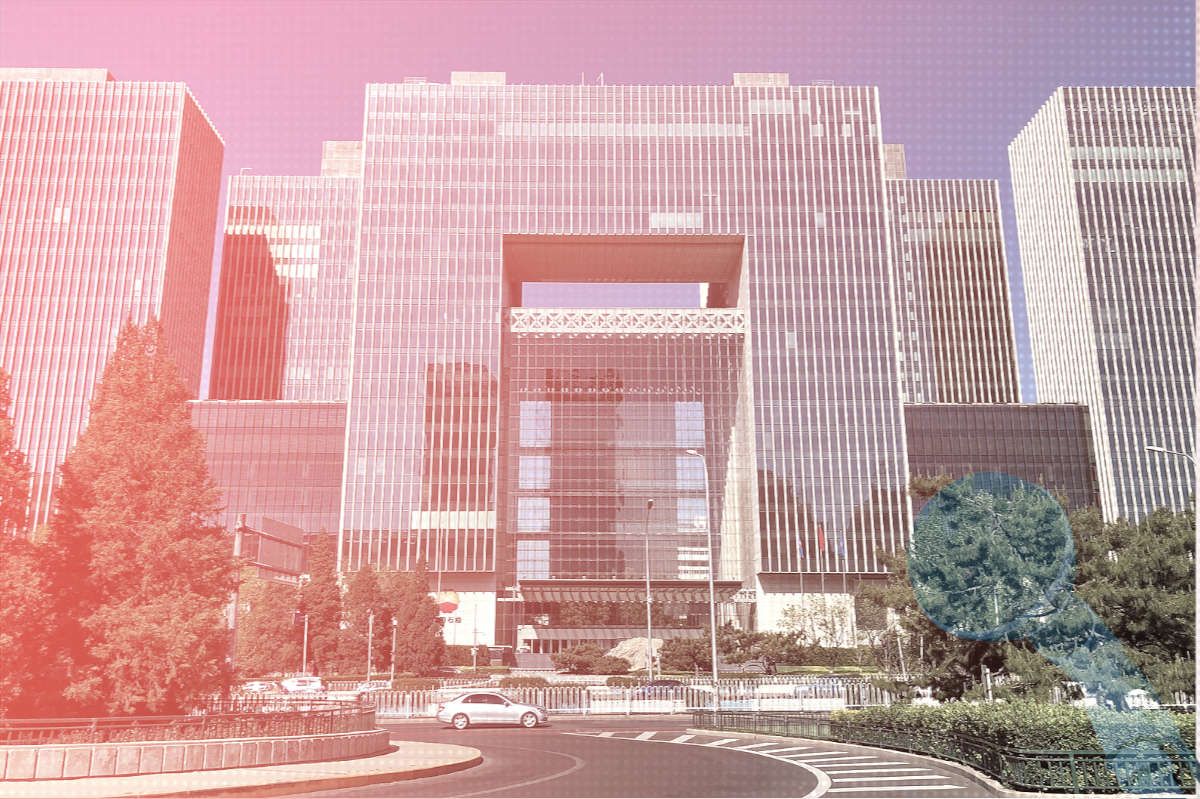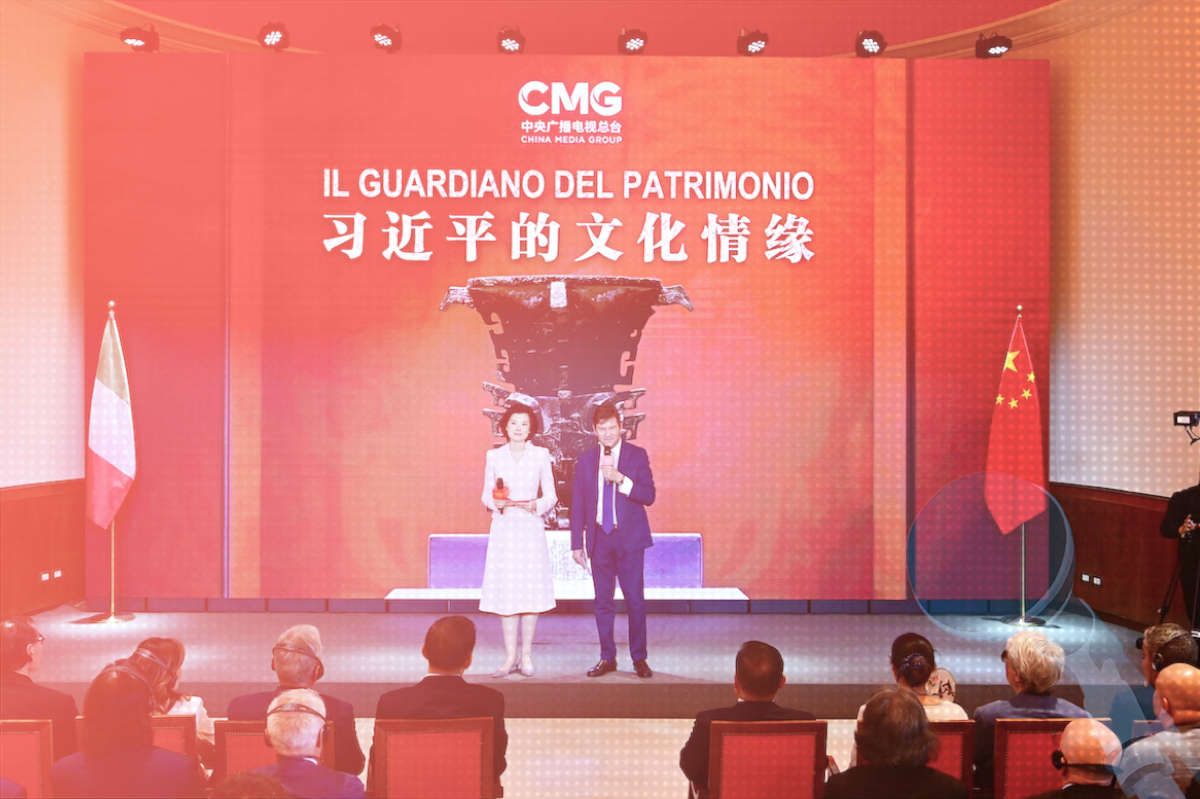China Newspeak
Observations on the 19th Congress Report
The following preliminary observations on the political report to the 19th National Congress of the Chinese Communist Party of China were offered by an expert on Chinese politics who wished not to be identified by their real name. The piece is published under the penname Wu Bing (吴冰). We offer only a partial translation of Wu’s observations here, followed by the original Chinese in full. For accuracy, we refer readers to the original — we thought it was important to get these observations out quickly, and so were translating under time constraints.
My overall assessment is that the political report to the 19th Party Congress is a document bearing the clear mark and brand of Xi Jinping, and that it amounts to a declaration of Xi’s intent to hold on to power for an extended period of time.
Impressions on the theme of the congress and thematic language
Political reports to the congresses of the Chinese Communist Party have declared congress themes clearly from the outset since the 15th National Congress was held in 1997. Statements are typically of the nature of holding high the banner of XXXX. In this respect, the author finds three things of note in this year’s report.
First, the way banner terms are used continues to show differences. The reports to the 15th and 16th congresses talked about “raising high the great banner of Deng Xiaoping Theory,” and from the 17th congress in 2007 this became “raising high the great banner of socialism with Chinese characteristics.” These statements on banner terms run continuously through the 17th, 18th and 19th congresses.
Second, the content of “socialism with Chinese characteristics” has been enlarged. Before the 17th congress, “socialism with Chinese characteristics” was generally prefaced with the words “build” (建设) and “initiate” (开创), and it was followed by words like “task” (事业) and “new phase” (新局面). The report to the 17th congress spoke of “opening up the road of socialism with Chinese characteristics, creating a theoretical system of socialism with Chinese characteristics” (开辟了中国特色社会主义道路,形成了中国特色社会主义理论体系), and the 18th congress report elaborated this to “system of socialism with Chinese characteristics” (中国特色社会主义制度体系). To this, the 19th congress has now added the notion of a “culture” of socialism with Chinese characteristics.
Third, beyond enlargement of the content of socialism with Chinese characteristics, there is an elevation of the status of this phrase in the report. The 17th congress report stated: “The great banner of socialism with Chinese characteristics is a banner of development and progress for China, a banner of unity and struggle for the entire Party and the entire country.” The 18th congress report said: “The path concerns the lifeline of the Party, concerns the future prospects of the country, the fate of the nation, the prosperity of the people. . . . For 90 years, our Party . . . . has created and developed socialism with Chinese characteristics, fundamentally changing the prospects and fate of the Chinese people and the Chinese nation.”
The 19th congress report says: “Through long striving socialism with Chinese characteristics has reached a new era; this is a new historical position in the development of our country. Socialism with Chinese characteristics entering a new era . . . . means that scientific socialism shines with vitality and opportunity in the 21st century, that the great banner of socialism with Chinese characteristics is held high in the world; it means that the path, theory, system and culture of socialism with Chinese characteristics constantly develops and expands the path by which developing nations can progress toward modernization, giving those countries and peoples in the world an entirely new choice as they hope to accelerate their development and maintain their own independence, providing Chinese knowledge and Chinese solutions to the problems facing humanity.”
So we see that the status of socialism with Chinese characteristics has been upgraded — from being the lifeline of the Party and the fate of the people, to a global movement of scientific socialism, to a matter finally of the progress of developing nations and even a solution to the problems facing humanity.
I’ll make two further observations concerning the thematic language opening the report. First, we should note that the language about “the great rejuvenation of the Chinese people” appears in much more prominent position as part of the opening section propounding the theme of the congress. This phrase first appeared in the report to the 17th congress, but in the main body of the report. At the 18th congress, it appeared again, this time in a section explaining the themes of the congress. Second, we should note that the notion of the “Chinese dream” is added to the language in the 19th congress report, yielding the phrase, “tirelessly struggling to realize the Chinese dream of the great rejuvenation of the Chinese people.” In this passage, the “Chinese dream” gets its first appearance in a political report. The “Chinese dream” is one of a small number of phrases that make first appearances in this political report. Another is “not forgetting our original intentions” (不忘初心).
We must remark the fact that in the 19th congress report, this language about original intentions and missions bears unmistakable hints of nationalism (民族主义色彩). The language I refer to specifically is: “The original intention and mission of the Chinese Communist Party is to seek prosperity for the Chinese people, and to seek the rejuvenation of the Chinese nation” (中国共产党人的初心和使命,就是为中国人民谋幸福,为中华民族谋复兴).
Impressions Concerning the Language Describing the “Overall Situation” (全局)
These types of phrase in the political report include: “New Era” (新时代); “The Thought of New Era Socialism With Chinese Characteristics” (新时代中国特色社会主义思想); “the leadership of the Party” (党的领导); “transformation of the principal contradictions in our country” (我国主要矛盾转化) 我国国主要矛盾转化). I’ll address these one by one.
New Era
On its surface, this phrasing doesn’t provide much in the way of information — so we need to look at its placement and context within the report. In my view, the raising of “new era” in the 19th congress report is to make clear that a line can be drawn distinguishing the leadership period since the 19th congress and after the 19th congress, essentially accentuating its historical status and historical purpose.
Looking at theoretical formulations of the CCP in the past, we notice that the Party at its most senior levels not only interprets eras in light of domestic circumstances, but more importantly in light of the trends shaping the development of human civilization (人类文明) more broadly in the world. After the Party came to power in China in 1949, Mao Zedong held that the world was in the midst of an era of revolution and war, and the notion that “class struggle is the guiding principle” (阶级斗争为纲) wove through every aspect of the work of the Party-state. During the Cultural Revolution, we saw slogans like, “preparing for war and natural disaster” (备战备荒), and “digging the tunnels deep, keeping vast stores of grain” (深挖洞广积粮) — the entire ethos of the era being one of impending calamity for which China must be prepared.
When Deng Xiaoping introduced economic reforms, the Party’s priorities were transferred to the economy, and one important precondition of this was Deng’s view that Mao had made a strategic error in judging the era. In the late 1970s, Deng Xiaoping’s judgement was that this was “an era of peace and development” (和平与发展的时代), that a third world war was unlikely, and that China must seize this historic opportunity to develop itself. From this point on, the reports at successive congresses and other major political meetings tended to emphasize that while the situation in the world was complex, we were still living through “an era of peace and development,” and the Party’s basic line must be followed.
In the 19th congress report, the notion of a “new era” is based essentially on changes inside China, and doesn’t involve a reading of changes in “human civilization” or global trends. We see the idea basically that after 40 years of economic reform, China’s economy and society have made remarkable gains, and now China’s development is at a new point where it faces new contradictions, new situations and new problems. In my view, given the justifications in the report, the word “phase” might have been a more accurate characterization. But of course, talk of a “new phase” would likely have been insufficiently strong to match the idea of a new thought of socialism with Chinese characteristics. “Era” and “phase” are hugely different. Theories are derived from practice, but eras give birth to thoughts. [NOTE: talk of a “new era,” in other words, lends much more gravity to Xi Jinping’s banner term, his own refinement/enlargement of “socialism with Chinese characteristics”].
Thought of New Era Socialism With Chinese Characteristics (新时代中国特色社会主义新思想)
The 19th congress report offers an explanation of the “New Thought of New Era Socialism With Chinese Characteristics” (新时代中国特色社会主义新思想). The report says that the “new thought” must answer the question: “What kind of socialism with Chinese characteristics must be upheld and developed, and how can socialism with Chinese characteristics be upheld and developed?” The principal content of the “new thought” are the so-called “8 Clearlies” (8个明确), and later there is mention too of the “14 Adheres” (14个坚持). My overall sense is that this “new thought” has not reached a theoretical apex, but is mostly right now a set of thoughts and statements on the national situation, tasks, missions, objectives, steps and demands. Its main emphasis is on arranging tasks, and most of it is providing direction. It lacks analysis and exposition on larger historical principles. While it definitely has some significance in terms of guidance, I’m afraid it cannot avoid, owing to its exhausted reservoir of ideas, the familiar problems of loss of direction, wavering and vacillation.
This “New Thought of New Era Socialism With Chinese Characteristics” is the soul of the 19th congress report. It is also forms the root and basis for future actions in specific areas such as the economy, politics, society and culture, ecological civilization, Hong Kong and Taiwan affairs, foreign affairs, the military and the Party.
The Leadership of the Party
The leadership of the Party is a principle that the Chinese Communist Party cannot and will not allow to be shaken. This is a principle that has been reaffirmed at every successive party congress through history. What is quite astonishing about the report to the 19th Party Congress is that we see the return of a phrase we have not seen since the Mao era: “Party, government, military, people and education, east, west, south and north, the Party leads everything” (党政军民学,东西南北中,党是领导一切的). This amounts to the resurrection of language from the Maoist era. Deng Xiaoping was very clear from the outset of reforms that strengthening the leadership of the Party would have to first mean improving the leadership of the Party, and this idea was emphasized repeatedly. The language in the report to the 13th congress in 1987 was especially explicit about this in its content about political system reforms (政治体制改革). The report to the 16th congress too talked about reforming and improving the Party’s methods of leadership and governance.
This language is not carried forward in the report to the 19th congress. If we take the language in successive Party congress reports together for comparison, we notice something quite noteworthy in the 19th congress report. While upholding and strengthening the leadership of the Party remains a fundamental and consistent position, the 19th congress report diverges from reports of recent decades on the question of why and how the Party leads — and there are indications, it seems, of a return to the Mao era.
Transformation of the Principal Contradictions of Our Country
The political report to the 13th congress in 1987 offered a reaffirmation of the Party’s conclusions at the 8th congress concerning the principal contradictions of Chinese society, saying: “The chief contradiction we face at the present stage is the ever-growing material and cultural needs of the people versus backward social production.” The report to the 19th congress said: “Socialism with Chinese characteristics has entered a new era, and the principal contradiction of society in our country has been transformed into a contradiction between steady advancing lifestyles and unequal and inadequate development.” This expression has new meaning, and it provides practical space for future deepening of reforms. If this notion of principal contradictions is hardened into a formal expression, it might come to serve as an ideological guide to promote and legitimise attempts to deep reforms in different areas.
十九大报告语词印象初粗谈
吴冰
总的印象:十九大报告是一篇刻上鲜明的习氏烙印的习长期执政宣言。
一、有关大会主题及主题词语印象
中共党的全国代表大会报告,开宗明义明确提出大会主题的写法自15大报告起,惯常的表述是高举xxxx旗帜……。笔者注意到三点:
一是旗帜说法有不同。15大、16大提的是“高举邓小平理论伟大旗帜”,自17大以后,提的是“高举中国特色社会主义伟大旗帜”,这个关于旗帜的提法,从17大报告到19大报告,贯穿连续了下来。
二是“中国特色社会主义”的内涵逐步扩大。17大报告之前,“中国特色社会主义”的前缀为“建设、开创”;后缀为“事业、新局面”。17大报告提出“开辟了中国特色社会主义道路,形成了中国特色社会主义理论体系”,18大报告在此基础上再增加“中国特色社会主义制度体系”,19大报告增加中国特色社会主义“文化”。
三是,不仅中国特色社会主义内涵增加,而且报告对其地位和重要性不断抬升。17大报告提:“中国特色社会主义伟大旗帜,是当代中国发展进步的旗帜,是全党全国各族人民团结奋斗的旗帜。”18大报告提:“道路关乎党的命脉,关乎国家前途、民族命运、人民幸福。……九十多年来,我们党……开创和发展了中国特色社会主义,从根本上改变了中国人民和中华民族的前途命运。”19大报告提:“经过长期努力,中国特色社会主义进入了新时代,这是我国发展新的历史方位。中国特色社会主义进入新时代……意味着科学社会主义在二十一世纪的中国焕发出强大生机活力,在世界上高高举起了中国特色社会主义伟大旗帜;意味着中国特色社会主义道路、理论、制度、文化不断发展,拓展了发展中国家走向现代化的途径,给世界上那些既希望加快发展又希望保持自身独立性的国家和民族提供了全新选择,为解决人类问题贡献了中国智慧和中国方案。”。即把中国特色社会主义的地位和意义,从事关党的命脉和中华民族前途命运提升到事关世界科学社会主义运动、事关世界上发展中国家的发展进步、事关解决当代人类问题的高度。
关于大会主题的词语还有两个分析:一是“中华民族伟大复兴”,这个语词第一次出现在是17大报告的行文中,到18大报告出现在分析和说明大会主题的段落中,在19大报告里,直接成为阐明大会主题的一个部分。并且,19大报告里“为实现中华民族伟大复兴的中国梦而不懈奋斗”这句话的“中国梦”是第一次进入中共党的全国代表大会报告。“中国梦”可以看作是19大报告中首秀语之一。关于大会主题部分的另一个首秀语是“不忘初心”。19大报告对初心与使命结合的解释表现出鲜明的民族主义色彩。
二、关于总领报告全局的语词印象:
这样的语词有以下几个:新时代;新时代中国特色社会主义思想;党的领导;我国国主要矛盾转化。
1、新时代
就字面看,这个语词提供不了任何信息,需要将这个词语放到报告特定语境中去讨论。笔者认为,19大报告提出“新时代”,特指从18大以来19大以后的若干年,在某种意义上可以说是以中共党的主要领导人更换而划分的时间段,意图在突出人的历史地位和历史作用。
从以往中共的理论阐述看,中共党的最高层对时代作出论断,不仅着眼于对国内情况的判断,更重要的是看当代人类文明发展主潮流影响作用下的当时世界大势及走向。1949年中共执政以后,毛泽东认为世界始终处在革命与战争的时代,将“阶级斗争为纲”贯穿于党和国家工作的各个方面,到文革期间更是明确提出“备战备荒”,“深挖洞广积粮”。邓小平之所以提出改革开放,把党的工作重心转移到经济建设上来,一个重要的思想前提是,他认为毛对时代判断有重大失误。上个世纪七十年代后半期,邓小平基于对世界大势下的时代转变判断,指出当今时代是“和平与发展的时代”,第三次世界大战暂时打不起来,中国要抓住历史机遇发展自己。此后中共党的历次代表大会以及重要会议都重申:尽管世情国情变化复杂,但我们仍然处在“和平与发展的时代”,必须长期坚持党的基本路线不动摇。
19大报告提出的“新时代”,基本上立足于国内的变化,而不涉及对当今人类文明发展潮流的分析和对世界大势走向的判断。即,经过将近四十年的改革开放,中国经济社会取得了长足的发展进步,中国发展既处在新的节点上又面对一系列新矛盾新情况新问题。就此,笔者以为“新时代”的论断依据并不充分,说是“新阶段”更为恰当一些。当然,比之“新时代”,假如提“新阶段”,显然要与“中国特色社会主义新思想”匹配,似乎份量不够。时代和阶段有着很大的不同。理论来自于实践,时代是思想之母。不同的时代面对许多重大的甚至带根本性的不同问题,由此因时代主题不同而在实践中产生相对自成体系的新思想是可能的。而“新阶段”仅仅是一个历史过程中的某个时间段,尽管会出现新情况新特点,但因为没有走出那个历史过程,历史本身还不会出现本质不同的新情况新现象,也就不可能提出与此前截然不同的全新问题。由历史和实践本身所限,人们面对新情况可以深化对问题的认识与思考,但似乎难以形成一个具有不同时代主题的相对独立的思想体系。鉴于此,将实际中的“新阶段”说成是“新时代”, 尽管在一定程度上是出于某种需要而苦心构建的结果,但很可能因为立基不稳,降低党内外对“新时代中国特色社会主义新思想”的接受度和信服度。
2、新时代中国特色社会主义新思想
19大报告对新时代中国特色社会主义新思想作了说明。报告指出新思想要回答的是“坚持和发展什么样的中国特色社会主义,怎样坚持和发展中国特色社会主义”这个重大时代问题。新思想的主要内容是“8个明确”,而后又提出贯彻新思想的“14个坚持”。总体感觉“新思想”还达不到理论层面的高度,而只是对国情、任务、使命、目标、步骤、要求的思考和表述,主要侧重于工作布置,多数对实际工作具有指导和规约作用,缺乏对历史本质和规律的分析论述。由此,尽管有一定的指导意义,但恐怕依旧摆脱不了因思想资源枯竭、迷失前路方向,而深陷文明转型复杂矛盾中,踟躇彷徨、进退两难的困境。
这个“新时代中国特色社会主义新思想”是19大报告全篇的“魂与纲”,也是今后推进经济政治、社会文化、生态文明、港台外交、军事党建各具体领域改革建设的依据和指导,具有统领报告全局的地位和作用。估计这个“新思想”既是首秀语,又在一段时间内作为标配语,也可能随着更多深层矛盾的暴露和缠绕,而成为变动不居的上行语或下行语,但不可能是昙花语。
3、党的领导
党的领导是中共不容置疑不可动摇的原则,中共党的历次全国代表大会报告都会重申这个基本原则。令人惊讶的是,19大报告在关于党的领导表述中,恢复毛时代的语言“党政军民学,东西南北中,党是领导一切的”,这几乎可以看作是毛时代话语的再现。邓小平从改革开放一开始就明确指出:加强党的领导必须改善党的领导,以后多次强调这一思想。党的13大报告有关政治体制改革的内容也对此特别做了阐述,16大报告提出改革完善党的执政方式和领导方式,在一定程度上是对13大报告有关观点的继续和深化,这些在19大报告中都没有衔接。把改革开放以来历届党的全国代表大会报告有关党的领导问题的阐述联系起来看,19大报告耐人寻味,它很微妙地透露出,尽管坚持和加强党的领导是中共党一贯的基本思想主张,但对什么是党的领导,如何加强党的领导,19大报告又与以往报告有分歧,似乎有退回到毛时代的迹象。
4、我国社会主要矛盾转化
党的13大报告重申中共八大关于中国社会主要矛盾的论断,指出“我们在现阶段所面临的主要矛盾,是人民日益增长的物质文化需要同落后的社会生产之间的矛盾。”19大报告提出:“中国特色社会主义进入新时代,我国社会主要矛盾已经转化为人民日益增长的美好生活需要和不平衡不充分的发展之间的矛盾。”这个表述有新意,为后面的深化改革提供了可能拓展的实践空间。如果将这个主要矛盾转化提法理解运用充分了,将可能成为深化各个领域改革的思想引导和推进实践探索的正当性依据,将会对之后若干年内的改革、建设起到积极推动作用。
三、关于民主政治和依法治国
坚持“党的领导、人民当家作主、依法治国的三者统一”,这个提法是15大报告首次提出,以后一直延续至目前正开会的19大。这表明,20年前出现的这个提法已经作为中共党对于国家政治发展的基本理念而确立和巩固下来,以后这将作为对现有政治体制框架基本肯定的标配语而长期延续下去。
在这个部分首先值得注意的是,报告提出的“我国社会主义民主是维护人民根本利益的最广泛、最真实、最管用的民主”这个说法。这“三个最”是首次出现,可以看作为首秀语。报告紧接下面这段话:“中国特色社会主政治发展道路,是近代以来中国人民长期奋斗历史逻辑、理论逻辑、实践逻辑的必然结果,是坚持党的本质属性、践行党的根本宗旨的必然要求。世界上没有完全相同的政治制度模式,政治制度不能脱离特定社会政治条件和历史文化传统来抽象评判,不能定于一尊,不能生搬硬套外国政治制度模式。”
“三个最”、“三个逻辑”的说法,表明报告再次强调中国政治发展道路要坚持“中国特色”,绝不套搬外国政治制度模式。报告回避了民主政治的本质内涵,回避了人类社会政治发展的普遍规律要求而孤立强调中国特色,其背后的潜台词是不触动执政党的根本利益和权力地位,只对制度做修补式的改进,而非是“改变和革新”现有体制机制。与此相呼应,报告对民主政治的含义作了中国特色的解说:“有事好商量,众人的事情由众人商量,是人民民主的真谛。”也许这个解说会遭到更多的质疑。
在国家制度意义上的民主政治,最实质最要害的问题是人民对公共权力的控制和监督,防止权力侵害民众利益,这是民主政治的基本常识。因而,虽然民主选举不是民主政治的全部,但却是民主政治最基本最关键最不可缺少的环节。19大报告确定的发展中国特色民主政治的几项任务,回避了改革完善选举制度,而是把“有事好商量”作为民主真谛,确实是很鲜明的“中国特色”。
其次,值得注意的是,19大报告没有出现“依宪执政”、“依宪治国”这两个语词,却第一次明确提出“加强宪法实施和监督,推进合宪性审查工作,维护宪法权威”,这似乎有着更深的考虑。
众所周知,宪法的实施就是宪政,即依宪执政、依宪行政、依宪治国。这是现代政治文明的另一个基本常识。但是左的势力将宪政一词戴上反党黑帽子,从而使宪政一词成为政治禁忌。避开词语的意识形态争论,注重于实际的推进,19大报告提出“推进合宪性审查工作”,在宪法实施乃至宪法司法化的问题上明确地打开了探索之门。若这一步迈得踏实坚定,则不仅对推进中国民主政治发展进步具有积极意义,而且对促进中国社会全面进步具有全局性积极意义。同时,不触及相关概念而直接提出任务要求,这是否可以视为某种“少说多做、只做不说”,注重实际、低调推进、深化政治改革的策略呢?
四、关于党的建设部分语词
关于党的建设部分与此前几次党代会报告有明显的不同,主要有以下四个方面:
1、“以改革创新精加强党的建设”不见踪影
十七大报告党的建设部分标题为:“以改革创新精神全面推进党的建设新的伟大工程”;18大报告党的建设部分标题为“全面提高党的建设科学化水平”,紧接着第一段落论述中这样写道“形势的发展、事业的开拓、人民的期待,都要求我们以改革创新精神全面推进党的建设新的伟大工程,全面提高党的建设科学化水平”。到19大报告党的建设部分,则不提以“改革创新的精神全面推进党的建设”。
回顾党的历次代表大会,1987年党的十三大报告首次提出“党的自身建设也必须进行改革,以适应改革开放的新形势”;1994年江泽民在全国农村基层党建会议上提出以“改革创新的精神加强党的基层组织建设”。此后“以改革创新精神加强党的建设”逐步在党建各个方面扩展,直至明确写入17 大报告。“以改革创新的精神加强党的建设”作为党的建设的重要指导思想延续十年,对党的建设产生了很好的积极推动作用,现在这一提法戛然而止,其在党的建设理论和实践上可能产生的后续效应有待观察。
2、一个新的昙花语:全面提高党的建设科学化水平
一般说来,标题性语词都意味着党在某一方面工作的核心指导思想。“以改革创新精神全面推进党的建设伟大工程”和 “全面提高党的建设科学化水平”分别作为中共17大和18 大报告党的建设部分标题,既是相互联系和递进的关系,表明改革正向中共自身推进和深化,既显示出开明开放、努力顺应时代要求的政党形象,又推动党的建设理念逐步发展更新,给执政党自身增添新的活力。但十九大报告摒弃了这一新的党建理念。
事实上,18大以来的五年,党的建设主要通过类似传统政治运动的方式开展,着重于严厉惩治腐败和高压整肃作风,同时加强和加快推进上对下严密控制监督的机构部署和制度规定,“全面提高党的建设科学化水平”这一新理念并没有真正贯彻下去,19大报告正式弃之似乎也合乎逻辑。“全面提高党的建设科学化水平”就此成为新的昙花语。
3、一组消失的党建热词
吸取执政后党在庐山会议、三年国民经济困难、1962年七千人大会、直至十年文革的惨痛经验教训,改革开放以来中共高度重视发展党内民主。尤其是党的十六大之后,发展党内民主、完善党代表大会制和党的集体领导制度成为党建改革探索创新的重要课题和热点话题,历届党代会都十分注意及时总结各地党组织的探索成果,并写入代表大会报告,推动发展党内民主、健全民主集中制稳步前行。
从党的十三大报告起,每次党代会报告都会在党的建设部分,把健全民主集中制专门作为一点阐述,并提出明确的任务要求,由此,“保障党员民主权利”、“努力完善党代表大会制度”和“党委集体领导制度”以及与此相关联的“党内选举制度”、“党代会常任制”、“党代表”、“党代表任期制”、党务公开、党内民主讨论等词语,历时30年,一直成为六届党代会报告党建部分的热词。但在19大报告中,这些语词全部消失。
比如,关于“党员权利”问题。
十三大报告提出:“要切实保障党章规定的党员民主权利,制定保障党员权利的具体条例。侵犯党员的权利,就是违反党的纪律,必须受到党纪处分。”
十四大报告说“要进一步发扬党内民主,加强制度建设,切实保障各级党组织和党员的民主权利。……支持和保护党员依据党章规定的权利发表意见。对侵犯党员民主权利,压制党员批评,进行打击报复或诬告陷害的人和事,要认真查处。”
十五大报告阐明:“要进一步发扬民主,保障党员的民主权利……”
十六大报告写到:“要以保障党员民主权利为基础,以完善党的代表大会制度和党的委员会制度为重点,从改革体制机制入手,建立健全充分反映党员和党组织意愿的党内民主制度。”
十七大报告说:“尊重党员主体地位,保障党员民主权利……”
十八大报告提出:“保障党员主体地位,健全党员民主权利保障制度……落实党员知情权、参与权、选举权、监督权。”
十九大报告对党员民主权利只字不提,更没有“保障党员民主权利”、“健全党员民主权利保障制度”的行文,只是在党建部分的《(四)加强基层组织建设》中提到:“扩大党内基层民主,推进党务公开,畅通党员参与党内事务、监督党的组织和干部、向上级党组织提出意见和建议的渠道。”
与此相联系,关于健全民主集中制,发展党内民主、完善党代表大会制度和党的集体领导制度等相关语词,同时在19大报告中绝迹。
而从十三大到十八大报告,有关坚持和健全民主集中制、发展党内民主、完善党代表大会制度和党的集体领导制度等问题,都做了相当篇幅的明确阐述:
十三大报告:“健全党的集体领导制度和民主集中制,要从中央做起。主要是:建立中央政治局常委向中央政治局、中央政治局向中央全会定期报告工作的制度;适当增加中央全会每年开会的次数,使中央委员会更好地发挥集体决策作用;建立中央政治局、政治局常委会、中央书记处的工作规则和生活会制度,使集体领导制度化,加强对党的领导人的监督和制约。地方各级党组织也要相应建立和完善有关的议事规则、表决制度和生活会制度。要改革和完善党内选举制度,明确规定党内选举的提名程序和差额选举办法。近期,应当把差额选举的范围首先扩大到各级党代会代表,基层党组织委员、书记,地方各级党委委员、常委,和中央委员会委员。要切实保障党章规定的党员民主权利,制定保障党员权利的具体条例。侵犯党员的权利,就是违反党的纪律,必须受到党纪处分。要疏通党内民主渠道和健全民主生活,使党员对党内事务有更多的了解和直接参与的机会。”
十四大报告:“要进一步发扬党内民主,加强制度建设,切实保障各级党组织和党员的民主权利。疏通和拓宽党内民主渠道,使党员的意见、建议、批评能够及时准确地反映上来。在党内生活中发扬讲真话不讲假话、言行一致的优良作风,支持和保护党员依据党章规定的权利发表意见。对侵犯党员民主权利,压制党员批评,进行打击报复或诬告陷害的人和事,要认真查处。扩大在市、县进行党的代表大会常任制的试点。积极探索党的代表大会闭会期间发挥代表作用的途径和形式。按照集体领导、民主集中、个别酝酿、会议决定的原则,完善党委内部的议事和决策机制,进一步发挥党的委员会全体会议的作用。改革和完善党内选举制度。建立和完善党内情况通报制度、情况反映制度和重大决策征求意见制度。各级党委必须坚持和健全集体领导制度”。
十五大报告:“要完善党的代表大会制度,健全各级党委集体领导和个人分工负责相结合的制度,更好地发挥地方党委在同级各种组织中的领导核心作用。”
十六大报告:“要以保障党员民主权利为基础,以完善党的代表大会制度和党的委员会制度为重点,从改革体制机制入手,建立健全充分反映党员和党组织意愿的党内民主制度。”报告进一步明确在党内民主制度建设方面的具体任务:扩大在市、县进行党的代表大会常任制的试点。积极探索党的代表大会闭会期间发挥代表作用的途径和形式。按照集体领导、民主集中、个别酝酿、会议决定的原则,完善党委内部的议事和决策机制,进一步发挥党的委员会全体会议的作用。改革和完善党内选举制度。建立和完善党内情况通报制度、情况反映制度和重大决策征求意见制度。
十七大报告:“完善党的代表大会制度,实行党的代表大会代表任期制,选择一些县(市、区)试行党代表大会常任制。完善党的地方各级全委会、常委会工作机制,发挥全委会对重大问题的决策作用。严格实行民主集中制,健全集体领导与个人分工负责相结合的制度,反对和防止个人或少数人专断。推行地方党委讨论决定重大问题和任用重要干部票决制。”
十八大报告:“完善党的代表大会制度,提高工人、农民代表比例,落实和完善党的代表大会代表任期制,试行乡镇党代会年会制,深化县(市、区)党代会常任制试点,实行党代会代表提案制。完善党内选举制度,规范差额提名、差额选举,形成充分体现选举人意志的程序和环境。强化全委会决策和监督作用,完善常委会议事规则和决策程序,完善地方党委讨论决定重大问题和任用重要干部票决制。扩大党内基层民主,完善党员定期评议基层党组织领导班子等制度,推行党员旁听基层党委会议、党代会代表列席同级党委有关会议等做法,增强党内生活原则性和透明度。”
十九大报告在党建部分没有提到任何有关发展党内民主、完善党代会和党委集体领导的制度创新设想,只是在党建部分的第一点《(一)把党的政治建设摆在首位》中笼统写到“完善和落实民主集中制的各项制度,坚持民主基础上的集中和集中指导下的民主相结合,既充分发扬民主,又善于集中统一。”
4、一组新的首秀语将可能成为热词
据上可见,至少在最近的五年中,发展党内民主将被冷冻边缘化,自上而下加强集中、强化高压监督控制将是党建运作机制的基本特点。这也为党建部分新出现的语词所预兆。
19大报告提出:“保证全党服从中央,坚持党中央权威和集中统一领导,是党的政治建设的首要任务”,“严格遵守政治纪律和政治规矩”,“增强党内政治生活的政治性、时代性、原则性、战斗性”,“重点强化政治纪律和组织纪律”,压倒性、重遏制、强高压、长震慑、政治巡视、巡视巡察、上下联动、监察全覆盖、留置取代“两规”、“构建党统一指挥、全面覆盖、权威高效的监督体系”等。
这些词语透露出,全面从严治党将致力于根除党建工作中的“软懒散”现象,厉行监督、厉行纪律,形成足够的震慑高压,以保证全党服从中央、维护中央权威和全党的统一行动。



